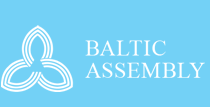Parliamentarians express importance of intensifying cooperation in research and interaction of education and labour market
On 26 March 2021, the digital meeting of the Education, Science and Culture Committee of the Baltic Assembly was held.
During the meeting, parliamentarians discussed strategic partnerships of the Baltic states in education and science, including the cooperation between the Baltic states in research and education and the impact of the COVID-19 crisis on the partnership. "We see that there is growing importance of science during these times of crisis. We believe that cooperation in research is extremely important as research, knowledge and data of three countries could allow us to make more precise conclusions and consequently also smarter decisions," said Chair of the Education, Science and Culture Committee Vytautas Juozapaitis. Experts expressed the importance of intensifying the cooperation the Baltic states in the research area, especially when it comes to COVID-19.
Another topic discussed was employment and labour market during and after the COVID-19 pandemic and the future challenges on education of the Baltic states. Due to COVID-19 the employment and labour market has changed and there is a growing concern that the changes might have long-term consequences. Expert of the Bank of Latvia Mr Olegs Krasnopjorovs added that in the Baltic states impact varies substantially by sectors, occupations and population groups, with low-income workers affected the most: “Without state intervention it is likely to raise long-term structural unemployment and income inequality”. The importance of interaction of education and labour market to prepare the future employees of the Baltic states was also highlighted.
During the meeting, parliamentarians, experts, high-level governmental experts as well as international partners assessed shared the experience in the education, research and employment sectors and tried to find possible cooperation areas for the Baltic countries. The meeting will help in formulation of the recommendations of the Baltic Assembly to the governments of the Baltic states in 2021 as well as evaluate the implementation of recommendations in 2020.



